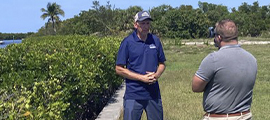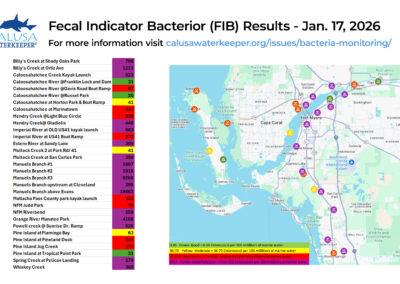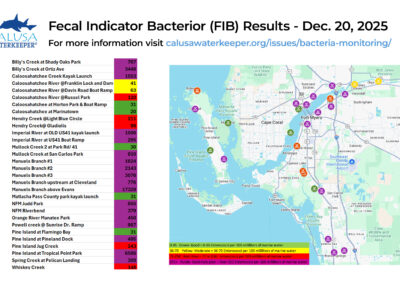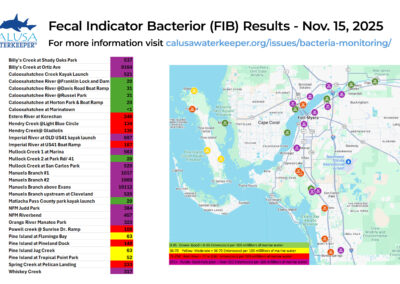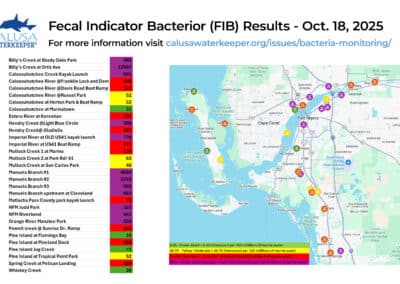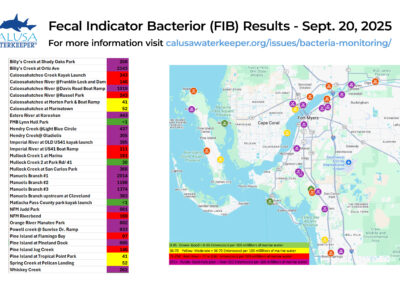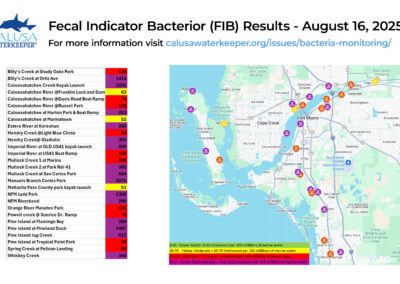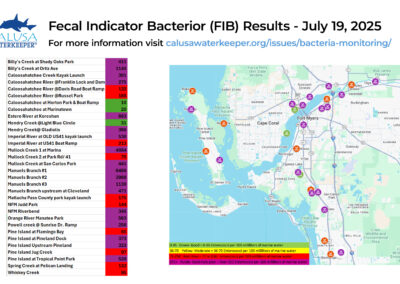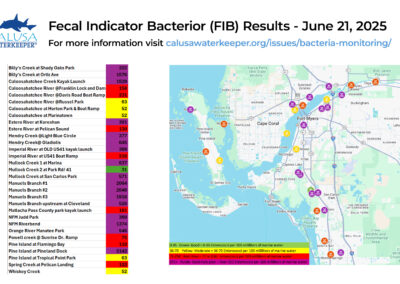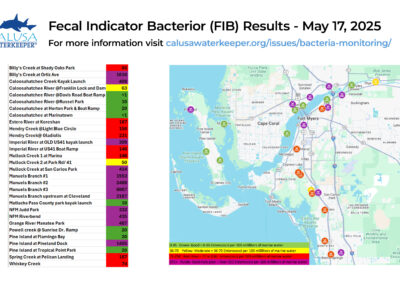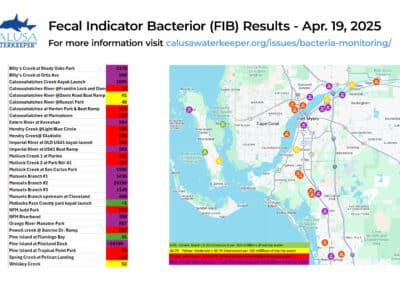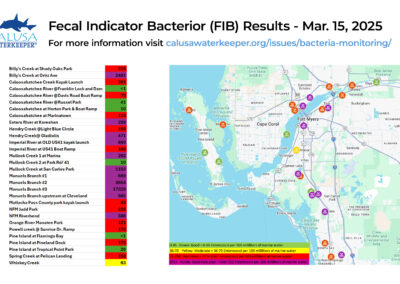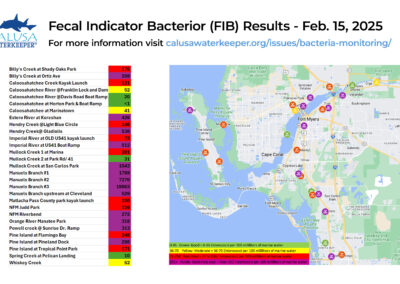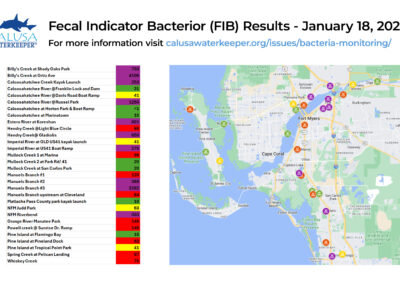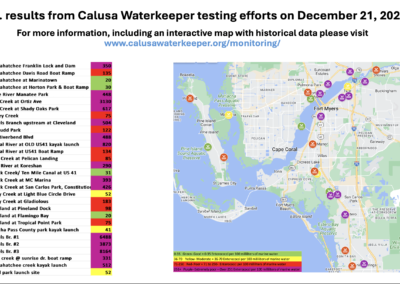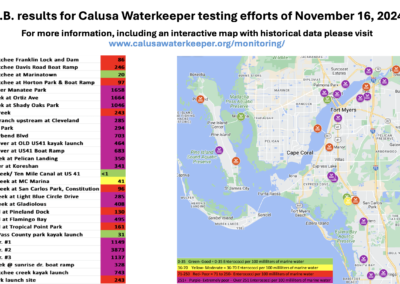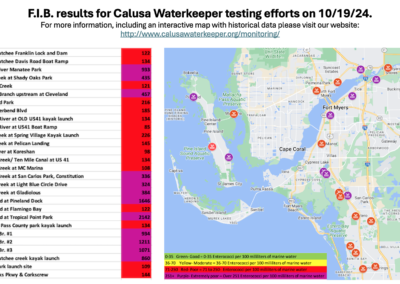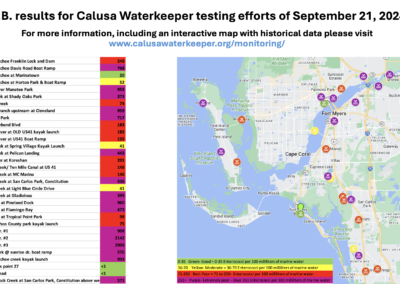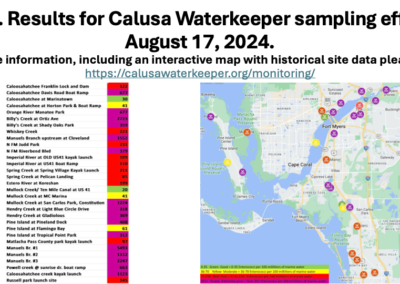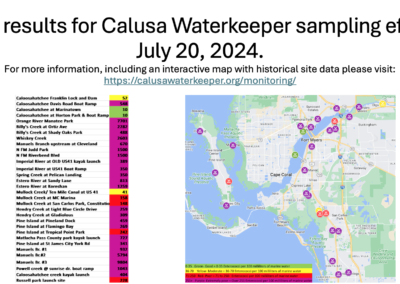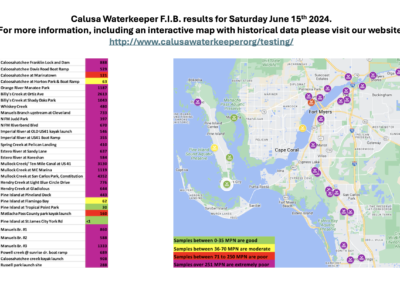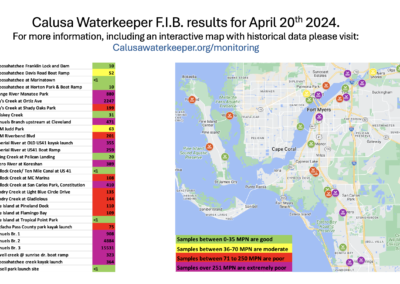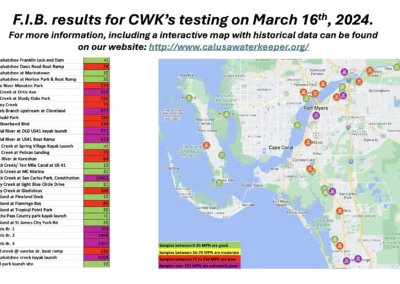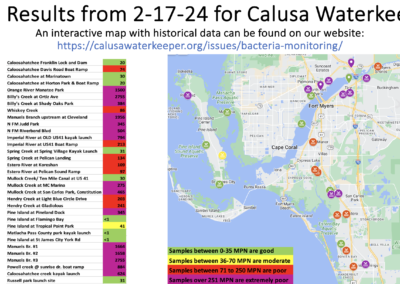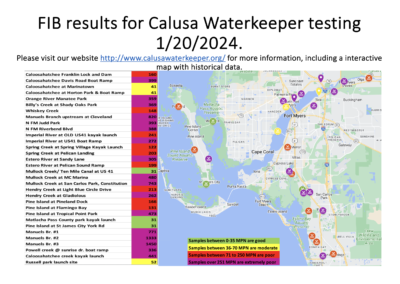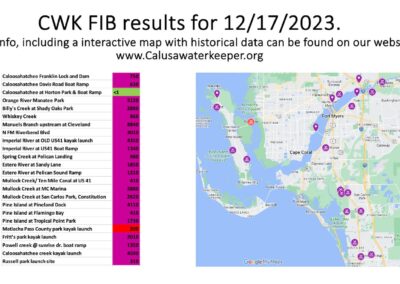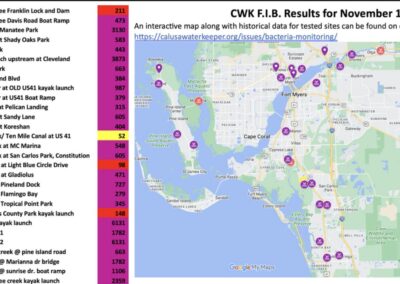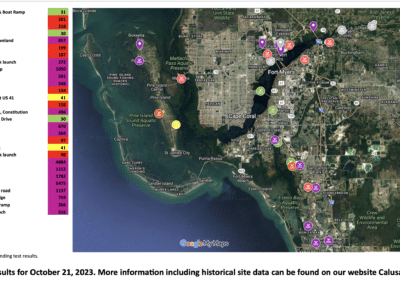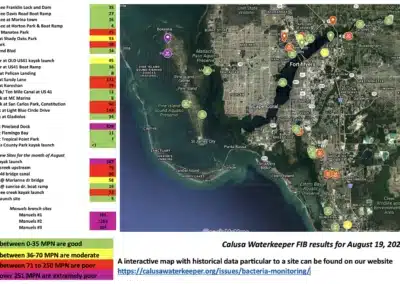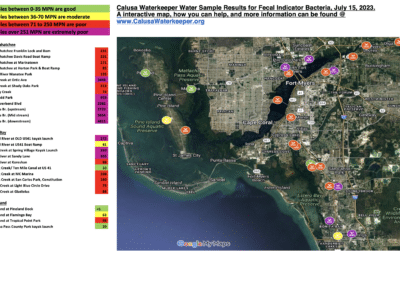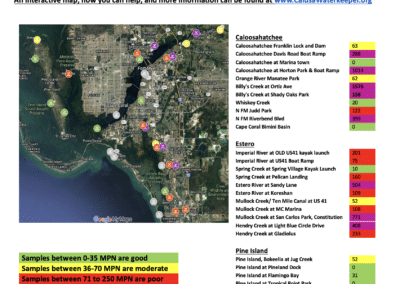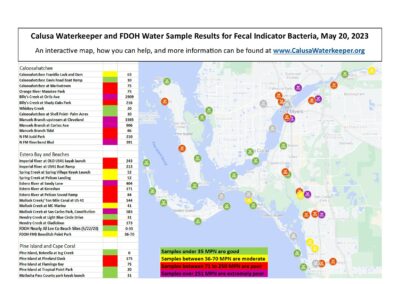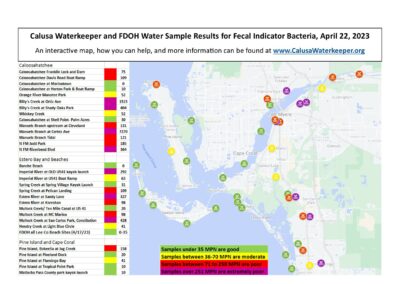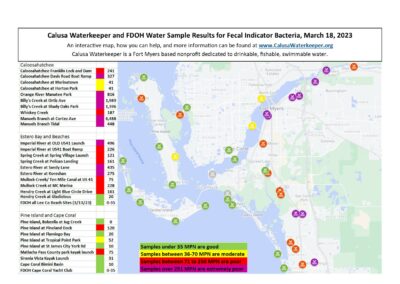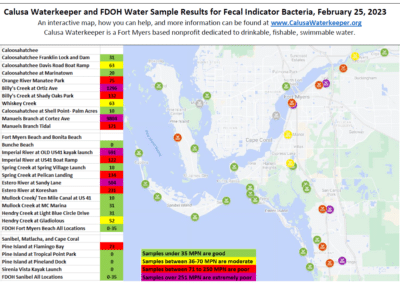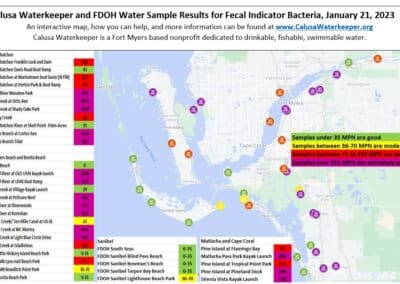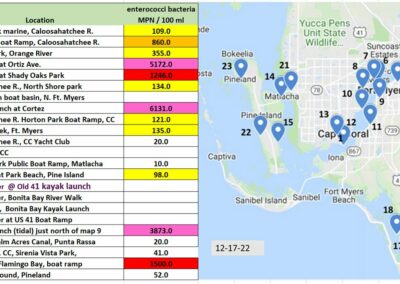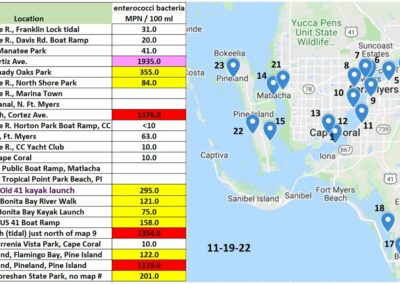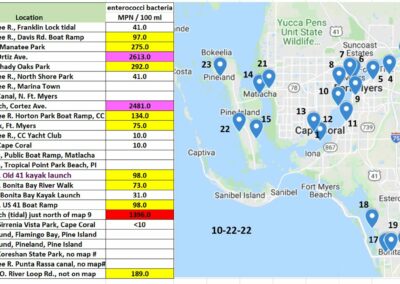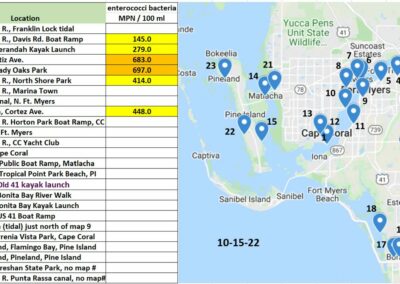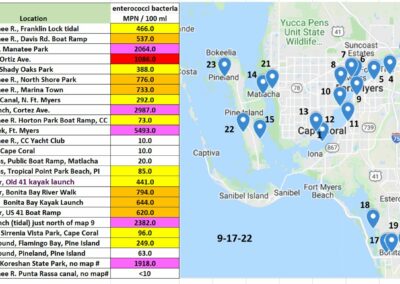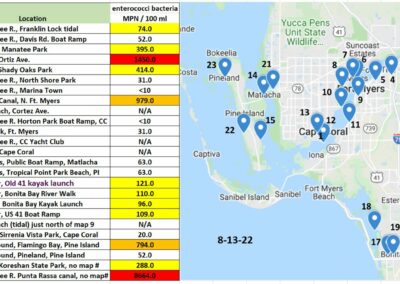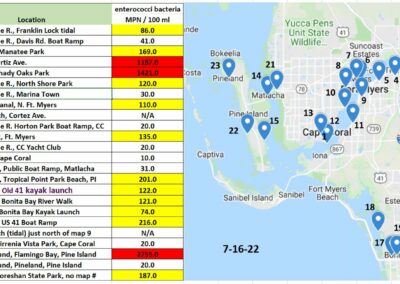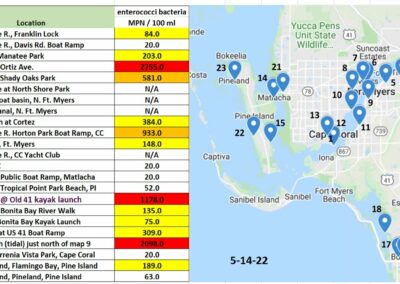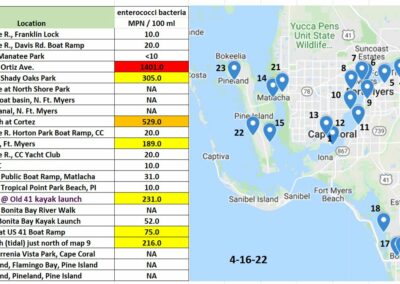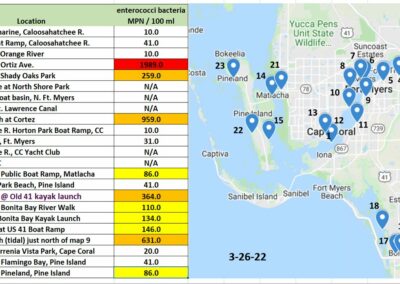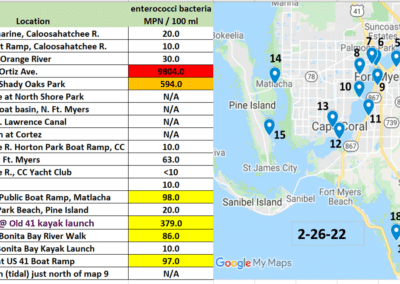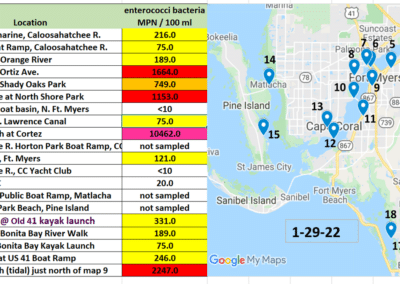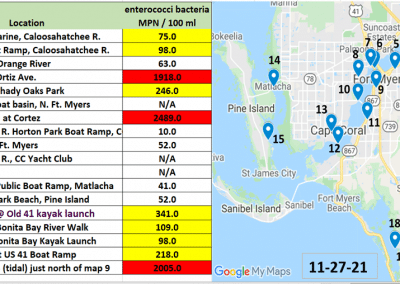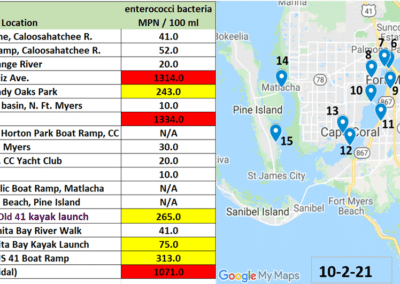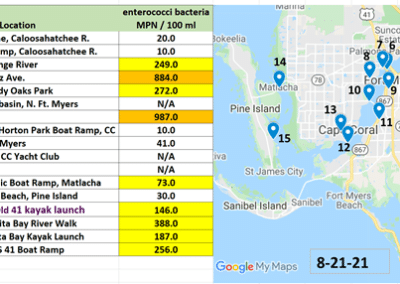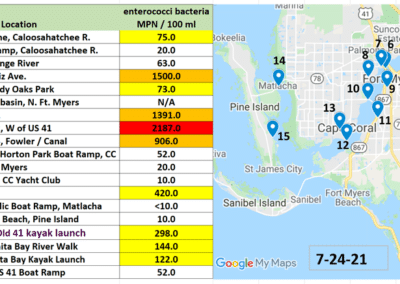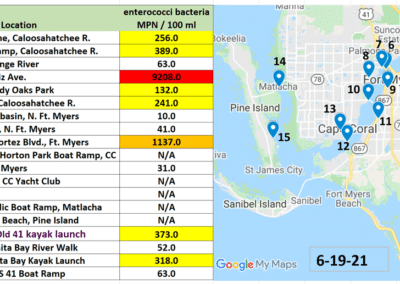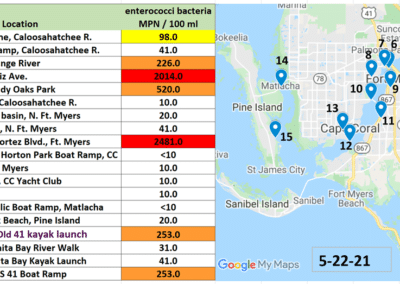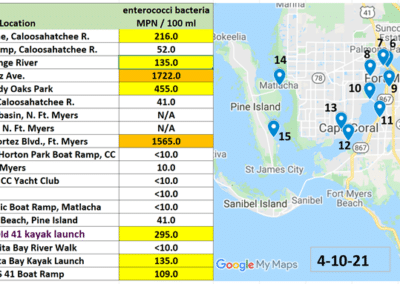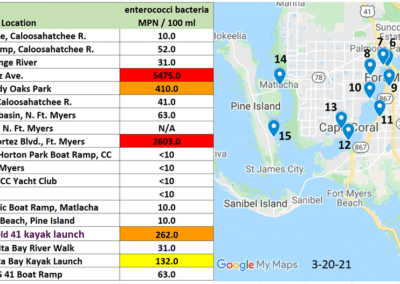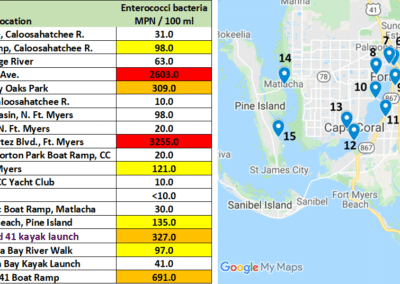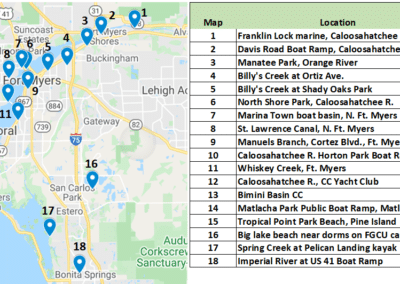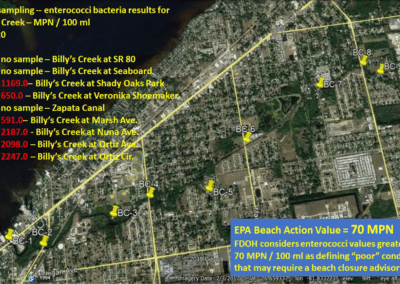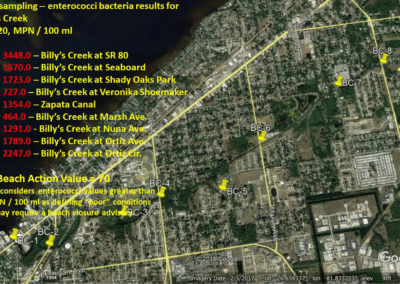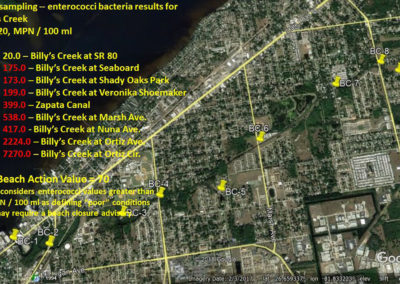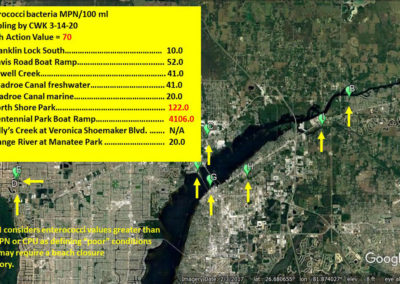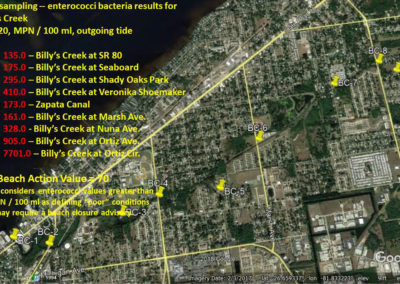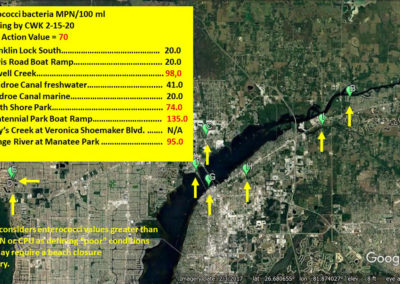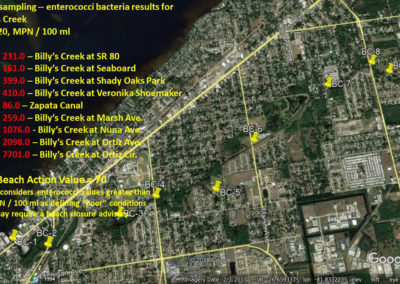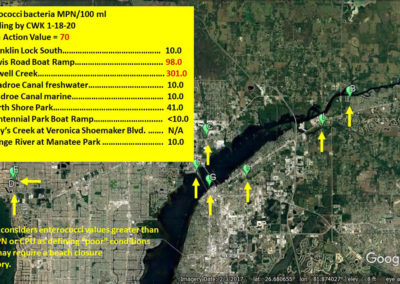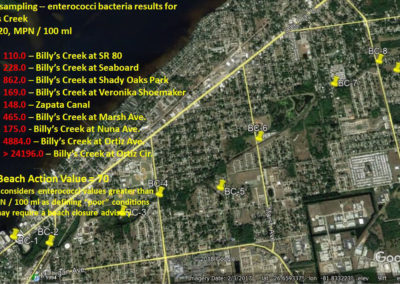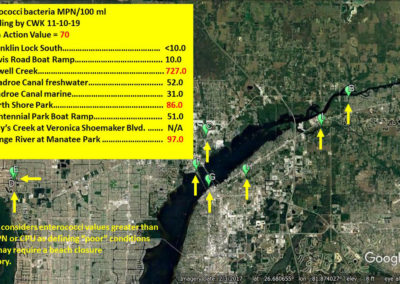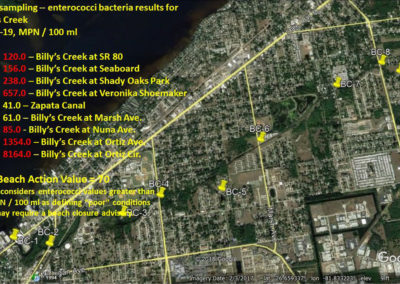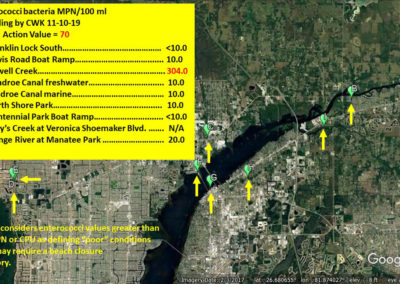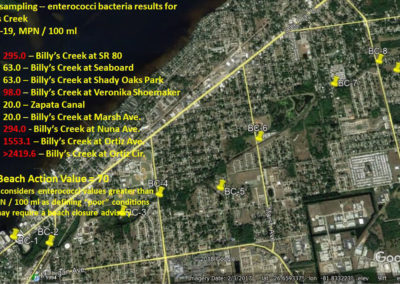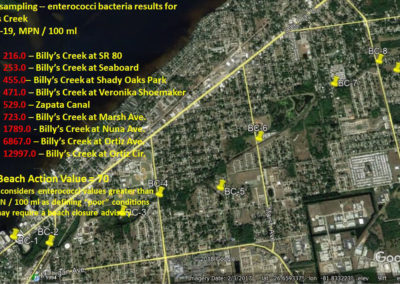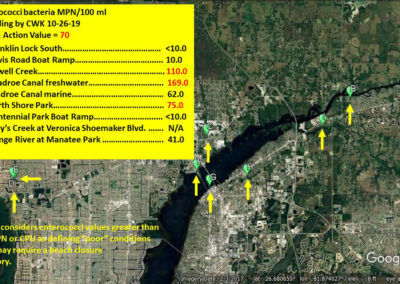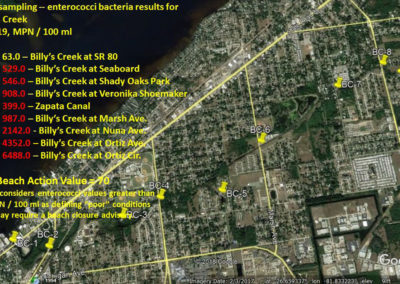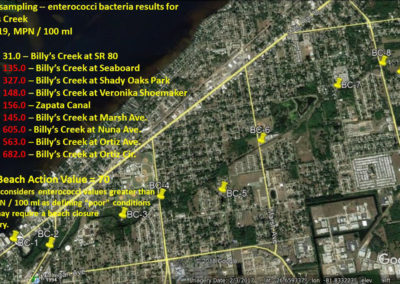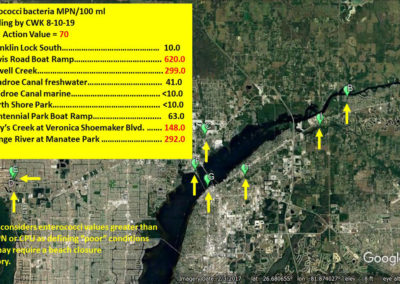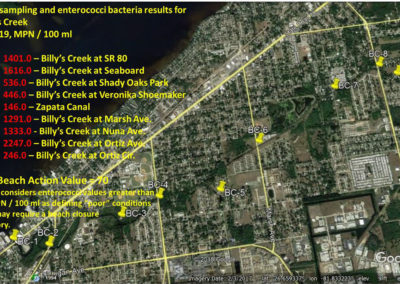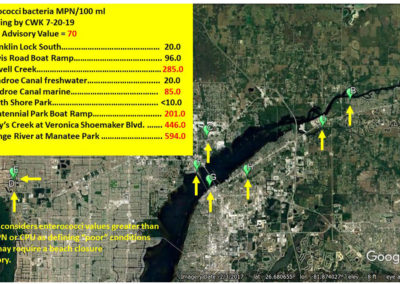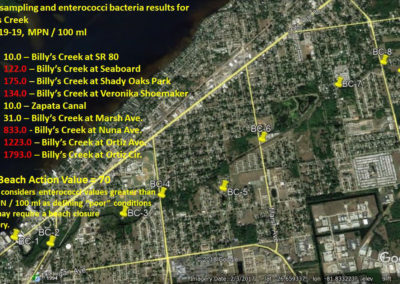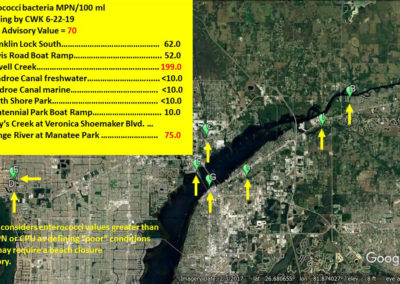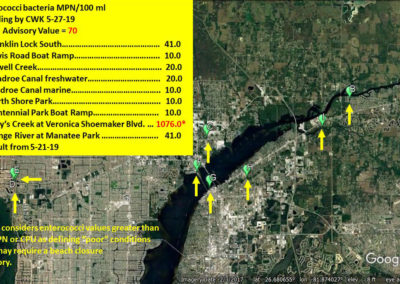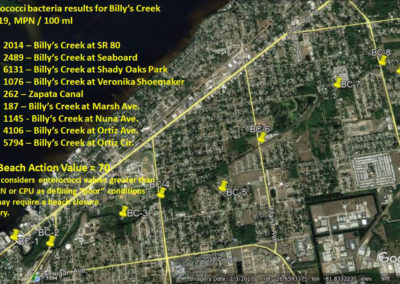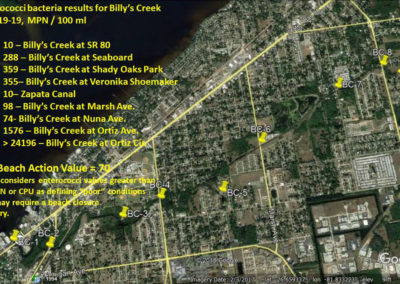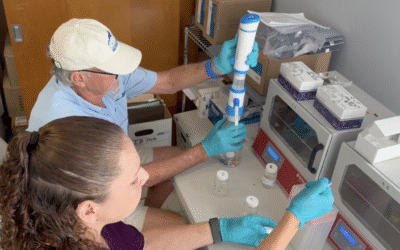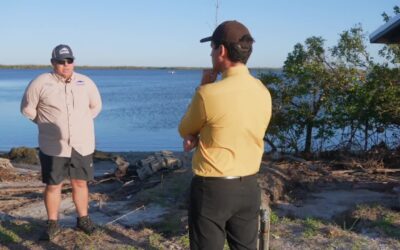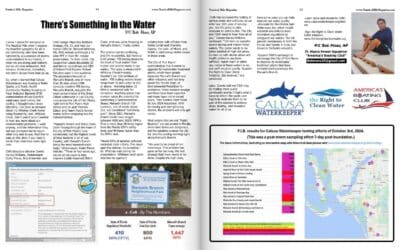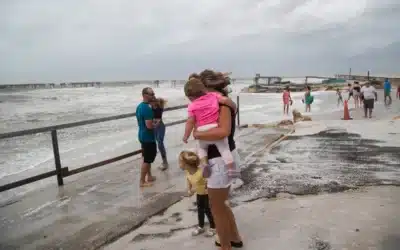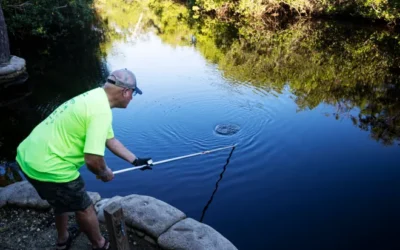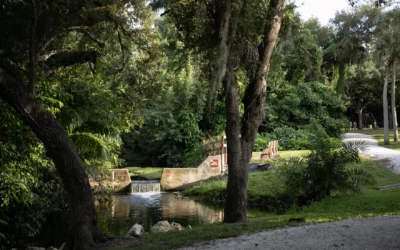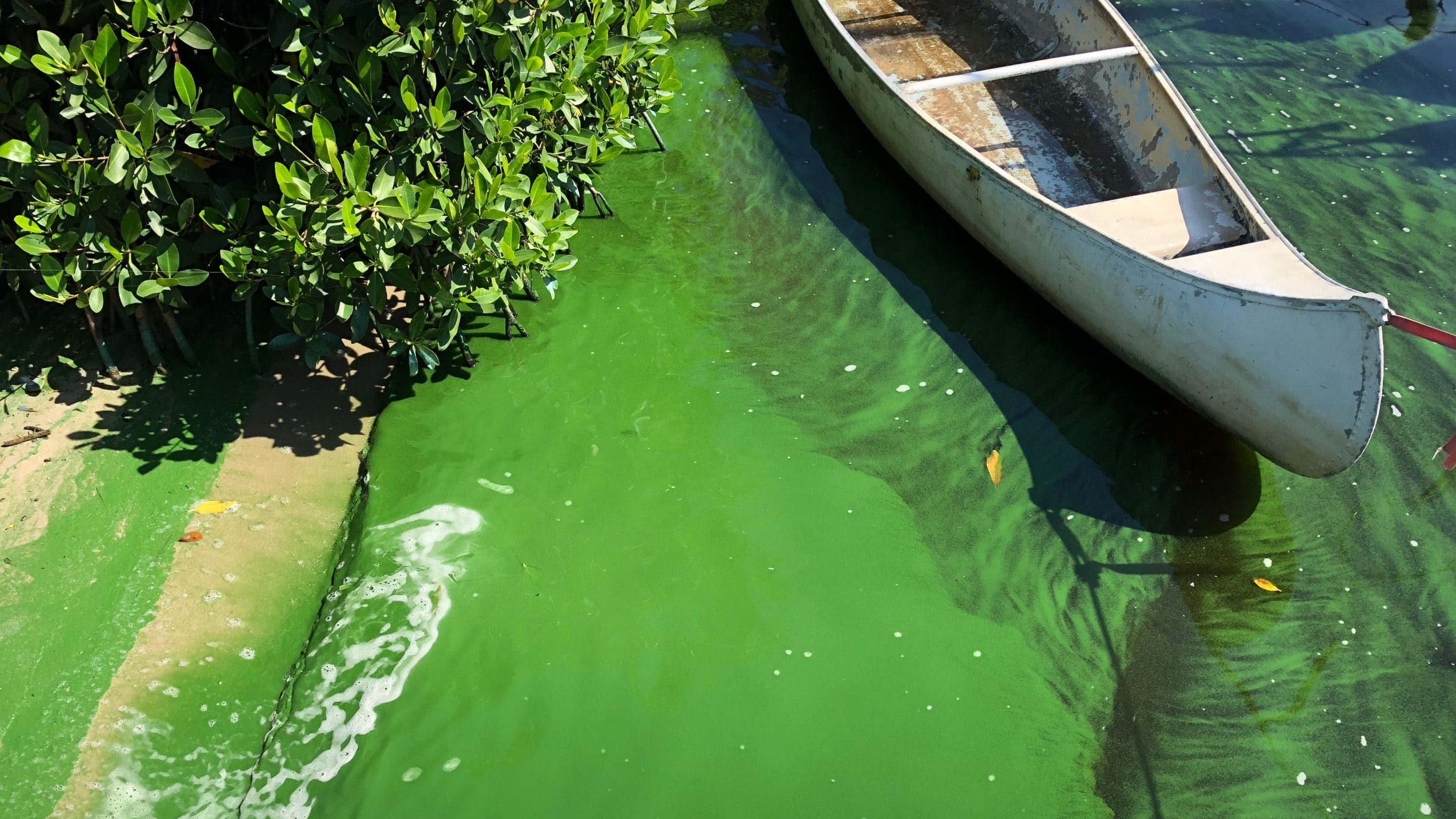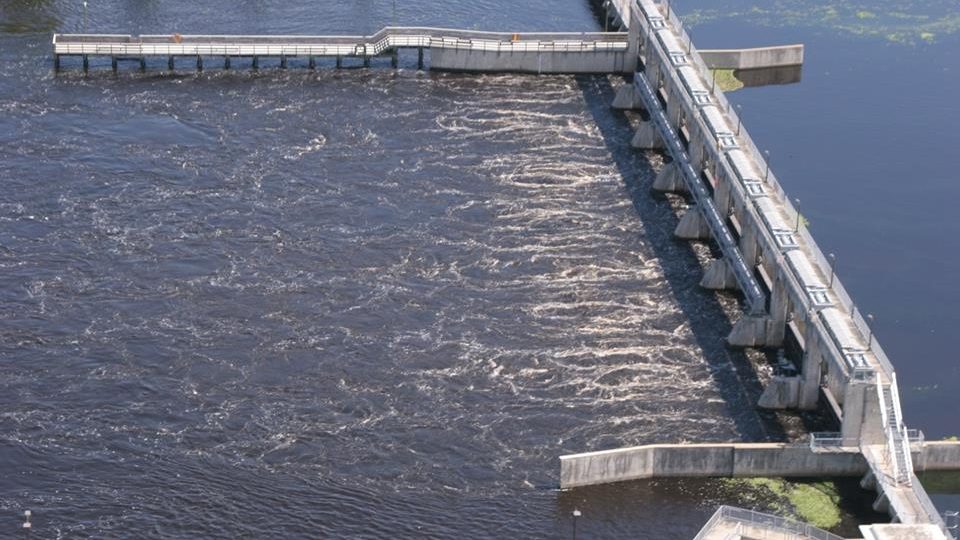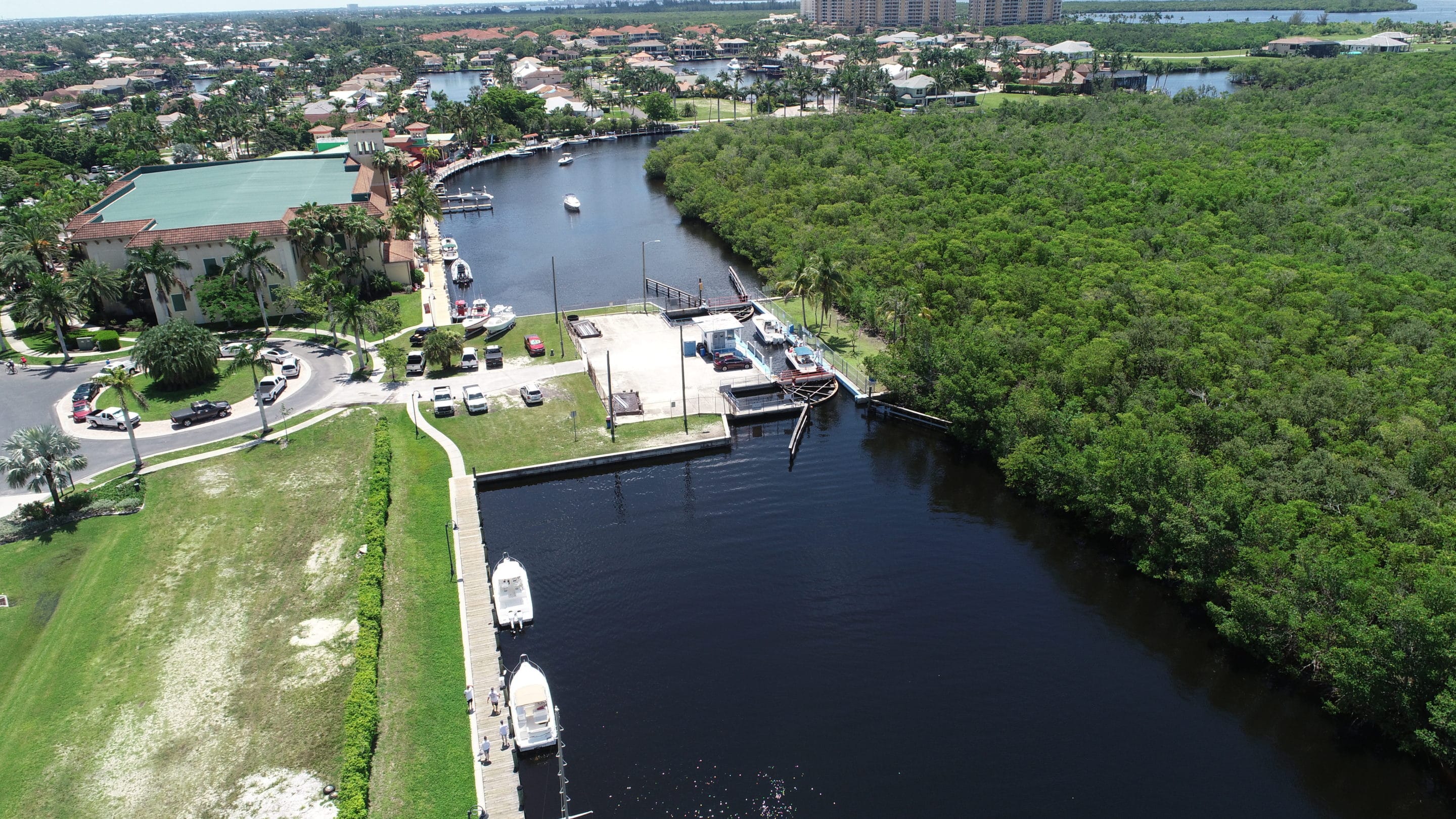Issue:
Bacteria Monitoring
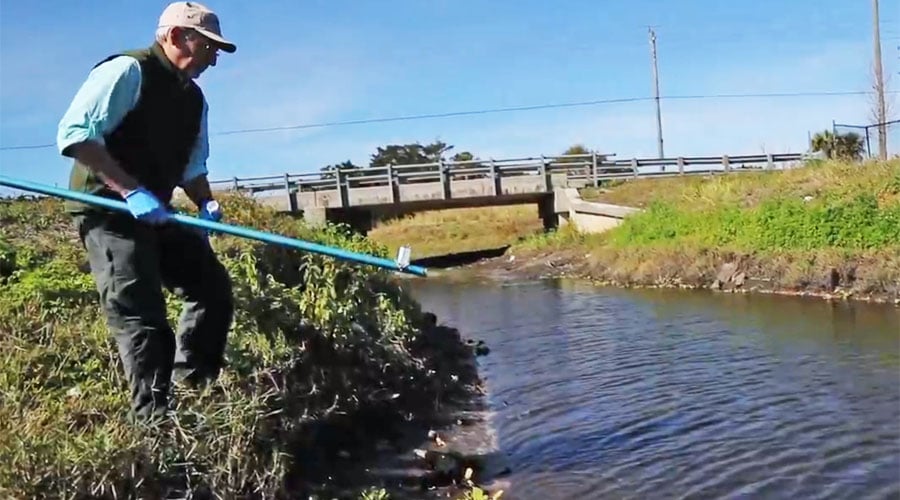
Fecal Indicator Bacteria (FIB)
Bacteria contamination plaguing Florida waterways has arguably reached a crisis point. For example, Billy’s Creek and Manuel’s Branch, tributaries flowing into the Caloosahatchee near downtown Fort Myers, have long been a hot spot for Enterococci bacteria. Enterococcus is used as an indicator of fecal contamination which can carry disease-spreading bacteria, viruses and parasites.
Independent testing of several Lee County waterways is routinely performed by Calusa Waterkeeper staff and volunteer rangers. Test results are determined in our independent lab and at Florida Gulf Coast University (FGCU) depending on the number of samples. Calusa Waterkeeper’s close watch of local creeks has compelled more monitoring by the Florida Department of Environmental Protection.
Enterococci bacteria can cause gastrointestinal illness, infections and rashes. Fecal indicator bacteria tests high in several Southwest Florida creeks both in the wet and dry season, but is commonly driven by stormwater runoff which carries bacteria into area waterways.
Updates & Action
Fecal Indicator Bacteria (FIB) Sampling
The data in this interactive map includes the latest Calusa Waterkeeper test sites. Click on a site to get more information and note the last date of sampling.
- It should be noted that we are not measuring or observing fecal matter in the water. These tests measure for fecal indicator bacteria, specifically enterococci.
- Bacteria sampling results show occurrences of serious contamination, especially in the upper reaches of Lee County tributaries.
- Contamination values have routinely been found at many times the EPA Beach Action Value of 70 MPN.
- Even with these high levels of contamination, few if any warning signs are typically posted.
- Both Lee County and city officials are aware of this issue.
FIB Sampling Archives
(click images to enlarge view)
Related News Stories
Fecal Indicator Bacteria
Calusa Waterkeeper sounds the alarm for harmful bacteria in Manuel’s Branch
Fox 4 Meteorologist Andrew Shipley joined Calusa Waterkeeper who has been testing our waterways for Fecal Indicator Bacteria (FIB) for years. One of the places that Calusa Waterkeeper says they are seeing the highest amounts of FIB, is at Manuel’s Branch in Fort Myers.
Dangerous levels of fecal bacteria found in Lee County waterways
A recent report from the Calusa Waterkeeper highlights alarming levels of fecal bacteria in many Lee County waterways.
There’s Something in the Water
Manuel’s Branch, arguably the most contaminated of the Great Calusa waterways in Lee County, runs across the city of Fort Myers, right behind Fort Myers High School and on past Thomas Edison and Henry Ford’s former homes before emptying into the Caloosahatchee.
Red tide showing up offshore, fecal indicator bacteria counts high after hurricanes
“We didn’t have a single site that passed the swimming beaches threshold of 70, so my main takeaway is there is a clear indication that we have a problem,” Pierce said. “We’re a first-world country living with third-world water quality problems.”
Fecal bacteria could still be high in creeks, rivers after Helene.
Avery is part of a small army of volunteers who scour Lee County creeks and rivers in hopes of better understanding pollution in the various watersheds, and they’ve been out in droves over the past week trying to capture a snapshot of local water quality after Hurricane Helene stirred local waters and flooded island communities.
Calusa Waterkeeper to highlight ongoing severe fecal bacteria presence at Manuel’s Branch creek
Calusa Waterkeeper sampled water in Manuel’s Branch last month and found the level of Enterococcus measured 21 times higher than the Florida Department of Health’s safety level and 44 times higher than the Environmental Protection Agency’s limit.
Make a Donation
Get Notified
Priority Issues
Harmful Algal Blooms
Cyanobacteria & Red Tide
Cyanobacteria (blue-green algae) and Karenia brevis (red tide) have been making major impacts on Southwest Florida.
Lake Okeechobee Discharges
Revise System Operating Manual
The Caloosahatchee River often suffers from too much freshwater in the wet season, and not enough freshwater in the dry season.
Cape Coral Spreader Canals
Nutrient & Sediment Loading
The City of Cape Coral is working to remove large storm-water barriers to make recreational boating more convenient.
Bacteria Monitoring
Fecal Bacteria
Calusa Waterkeeper has been at the forefront of monitoring this Fort Myers tributary for fecal bacteria indicators.

















